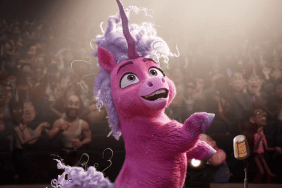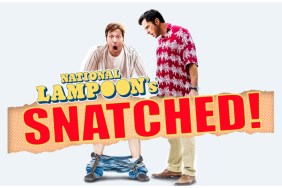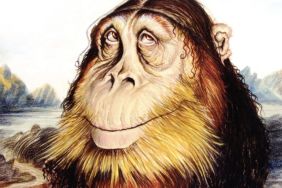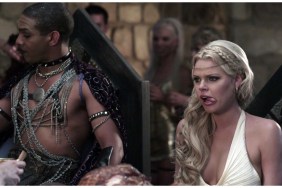
Exclusive interview with Drunk Stoned Brilliant Dead director Douglas Tirola
From its inception in 1970 through its slow, painful demise over the next three decades, the National Lampoon proved to be a launching pad for a myriad of writing, directing and acting talent whose influence on comedic culture in America is felt to this day. Begun as an offshoot of the Harvard Lampoon by young satirists Doug Kenney, Henry Beard and Robert Hoffman, it expanded into a multi-media empire that included movies (Animal House, Vacation), books, and Broadway shows (“Lemmings”).
Filmmaker Douglas Tirola has now directed a documentary chronicling the rise and fall of this amazing pressure cooker of comedic genius titled Drunk Stoned Brilliant Dead: The Story of the National Lampoon. It features many of those who contributed to or were influenced by the publication, including Chevy Chase, John Landis, Judd Apatow, Kevin Bacon, Tim Matheson, John Goodman, Billy Bob Thornton, Matty Simmons, Tony Hendra, P. J. O’Rourke, Chris Miller, Anne Beatts, Mike Reiss, Sean Kelly, Brian McConnachie, Michael Gross, Ivan Reitman, Bruce McCall, and Al Jean, as well as archival footage of staffers and performers the likes of John Belushi, Gilda Radner, Bill Murray and Michael O’Donoghue.
We got the chance to sit down 1-on-1 with Tirola to discuss his excellent documentary, the wide-reaching influence the Lampoon had on popular culture–everything from SNL to “The Simpsons”–as well as details about important figures in its history like Doug Kenney and John Hughes.
The film opens in limited theatrical release, On Demand and iTunes on September 25.

Douglas Tirola: Realistically, the first time it entered my life was through “Animal House” and then I went to seek out some of the magazine and the special editions after that.
CS: What impact did that have on you?
Tirola: It was definitely something I’d never seen before, and I remembered just going through the tenth anniversary book they had done which was really my first introduction in a hardcore way to looking at that over and over, the different articles. I would equate it to the way people used to just stare at the back of the album cover because there was nothing else visual to connect to the music. That’s how I took issues of the magazine and that 10th anniversary edition.
CS: Did you feel a kinship with the people you talked to who were just the fans like Judd Apatow and Billy Bob Thornton?
Tirola: I think I felt the way a number of the people we interviewed expressed both in the movie and not in the movie, which is that there ARE other people out there like me.
CS: You were already working on the film since the beginning of the decade. Had you made any overtures to get in touch with Harold Ramis before he passed?
Tirola: We did. He was sick by the time we spoke to him. As a matter of fact, when we interviewed Josh Carp, who wrote the Doug Kenney book, he literally lived across the street from him, and he confirmed that Harold was just not in a condition to be on camera at that point.
CS: The Harvard sensibility has crept into every major comic institution we know of, from SNL to The New Yorker to “The Simpsons.” How would you define the hallmarks of that sensibility?
Tirola: At its heart it’s satire or parody. They’re looking at something that’s currently in the mainstream, even though they do parodies of things that already happened to some extent, but if you look at the original one-off parodies that the Harvard Lampoon did it’s all material, magazines: Playboy, Sports Illustrated, Time, a book like Lord of the Rings (“Bored of the Rings”), that are in the psyche of the current culture. That is part of it. Also for me it’s hard to separate the Harvard Lampoon from the National Lampoon, so I’m looking at it more from the National Lampoon, but there’s certainly something that’s going on at the Harvard Lampoon that creates the tools for these guys to go on and do that. I don’t know if I would equate it specifically with Harvard. As Mike Reiss says, “150 years and only two famous writers.”
CS: Well, if you don’t count those guys!
Tirola: Meaning until you get to the National Lampoon.
CS: Well even though the Harvard sensibility is infused into it you still have big guys like Michael O’Donoghue and John Hughes who didn’t even go to college. How would you separate those two?
Tirola: It’s just my opinion, but what I think you get when you add the non-Harvard people to the Harvard Lampoon people and put them together at the National Lampoon, it’s more focus on anti-authority. You get a little bit more devilish in terms of the parody. You get a greater lack of barriers. Harvard Lampoon introduces this idea of, “We can go after anything within reason, sort of in a making fun of them sort of way.” When you get to the National Lampoon there’s more of a political edge, more of an anti-authority edge, more questioning of religion. Those are the things that you see. Before it was worth making fun of, now we’re going after them.

Tirola: I focus on Doug Kenney from a storyteller point of view, because his story encompasses a longer relationship with the Lampoon. Even though O’Donoghue did go to SNL and I think do some movie work. I’m trying to think of the one specific movie that got made…
CS: “Scrooged.”
Tirola: That’s it, Bill Murray’s “Scrooged.” But Doug Kenney’s story really mirrors what’s going on with the Lampoon as a company as well. His life’s arc is more of a metaphor or representation for what’s going on with the Lampoon. He was somebody that everyone at the Lampoon seemingly loved, even though they could be highly frustrated with him, whereas Michael O’Donoghue’s relationship with the people there, even when it was good, was contentious.
CS: He kind of thrived on creating anarchy and instability around him.
Tirola: Think of it like this, from a filmmaker’s point of view: You have all these books, but if you were gonna make a movie about the National Lampoon, I don’t think you would want to adapt any of those books straight. If you were thinking, “Who are gonna be my characters?” and you needed to focus, Doug Kenney would by the one you’d focus on because of his personality, who he is as a character, where he comes from, where he ends up and his relationship with the magazine. If you’re trying to tell a story about race in America you do Martin Luther King. Someone picks Selma to talk about. 42, the Jackie Robinson story, same thing about America’s relationship with race. Who’s the character who’s going to give you this tour through whatever the issue is. For me if you’re doing something about National Lampoon and the origins of contemporary comedy in America, he’s the figure that jumps out just in terms of making a good movie.
CS: In the doc they talk about him throwing the manuscript for his novel “Teenage Commies From Outer Space” out the window, this thing he’s worked on for a year. Someone in “A Futile and Stupid Gesture” said that might be apocryphal and that they actually cannibalized a lot of his novel for the yearbook and “Animal House.” Did you hear any of that?
Tirola: No. We heard that “Animal House” came from the yearbook and then there was the smaller Michael O’Donoghue yearbook parody which was in the Encyclopedia of humor, not in the actual magazine. That’s where that comes from. “Teenage Commies From Outer Space,” we had not heard, but I would say this: There was a cartoon article in 1972 that had to do with a teenage kid at a party in the magazine. At one point a girl is passed out and there’s a devil and an angel on somebody’s shoulders. It’s not a Chris Miller story, but it’s in the magazine and that ends up in the movie. One of the radio pieces we showcase about Ed Sullivan, Michael O’Donoghue did that on “Saturday Night Live,” so you see a theme of consistency of borrowing stuff from the magazine for movies and TV that happened. It’s not impossible that some ideas from “Teenage Commies From Outer Space” ended up in “Animal House” or several other things but it’s not a direct adaption of it.

Tirola: That’s a great question. There’s two trains of thought about John Hughes or P.J. O’Rourke when looking at it from a conservative side, but for Hughes you have this guy who’s an admitted conservative who goes on to become such a champion of alternative culture. How can that guy have created Duckie? From a political standpoint you might see he’s a Libertarian, he’s just a straight out hardcore Libertarian, not so much a conservative as he’s just out for freedom. In other words, even if freedom is at the cost of some people getting hurt along the way.
CS: You can see conservatives glomming onto things like “Ferris Bueller” as a metaphor for Reaganism, but it IS also about freedom.
Tirola: It’s just about freedom. “Breakfast Club” is an anti-authority film, “Ferris Bueller” is in some ways the same way. All of his films are celebrating being different. In terms of the day-to-day working with him, I asked a lot of people about him because I’m a huge John Hughes fan, and when I found the connection between John Hughes and the Lampoon it was a big discovery.
CS: It’s that whole thing of when you’re a kid you like this movie and that movie, and then later on you’re like, “Oh those were all made by the same guy!”
Tirola: Absolutely! So when you realize John Hughes wasn’t just there for two articles but an important amount of time. I think people thought he was kind of shy, awkward and he was good friends with P.J. who was the boss at that time. P.J.’s self-mandate was to get the place in order because it wasn’t being run as efficiently as it could, especially when there’s all these people leaving. He was really a steady horse, but obviously alienated people, and John and him were friends. P.J. said, “He was the best person I had working there,” and when he says that it was clear not just best in terms of taste in his work but in terms of his professionalism and his output. Before P.J. took over and John was just sending in material and they were printing it, Matty hired him and let him stay in Chicago. He would just come in for a meeting once a month. He was so good and so self-disciplined. Some of these other writers they’re hounding them in their office and they’re turning them in at the last minute, like 5 minutes left before it’s going to press.









